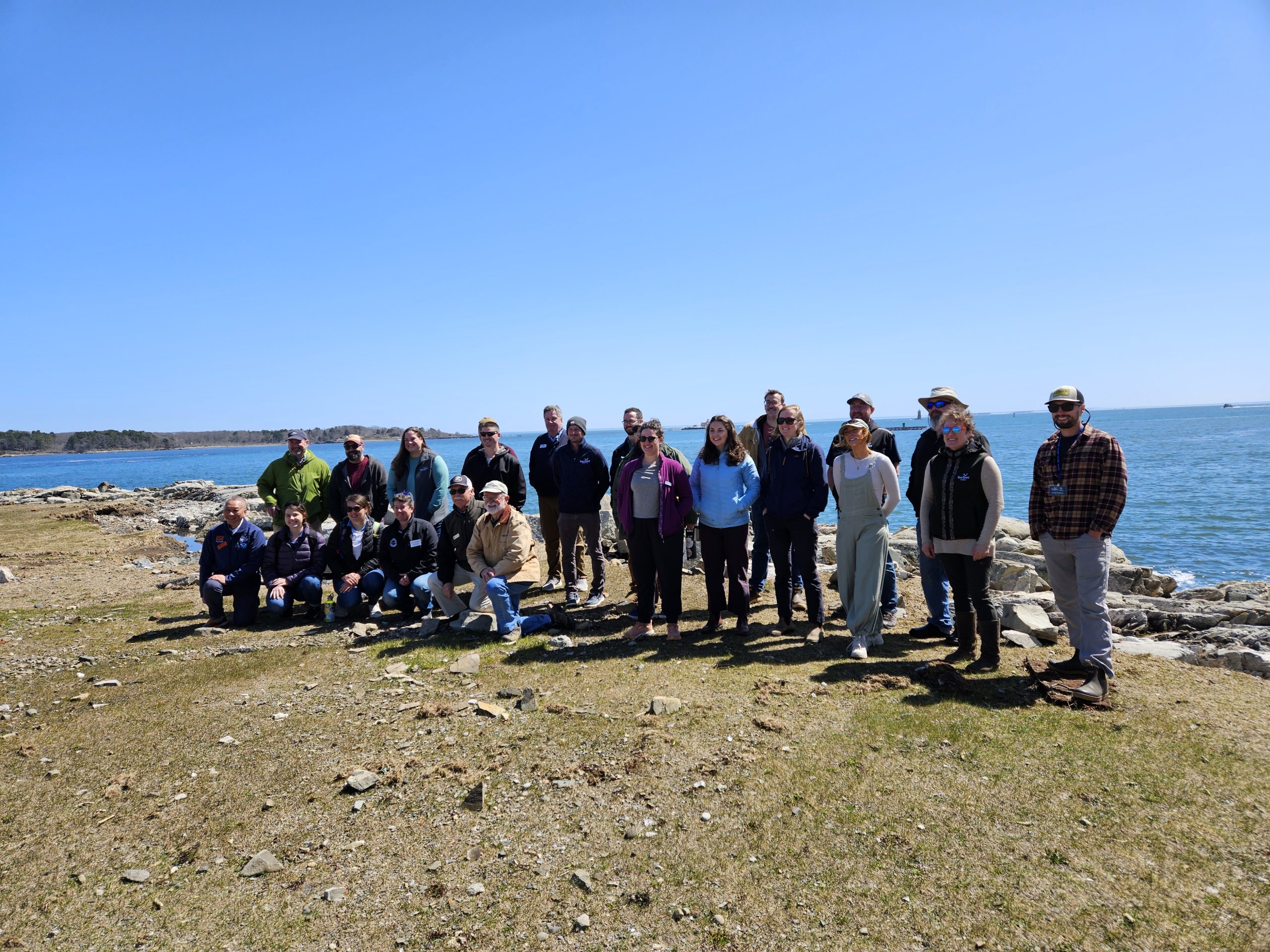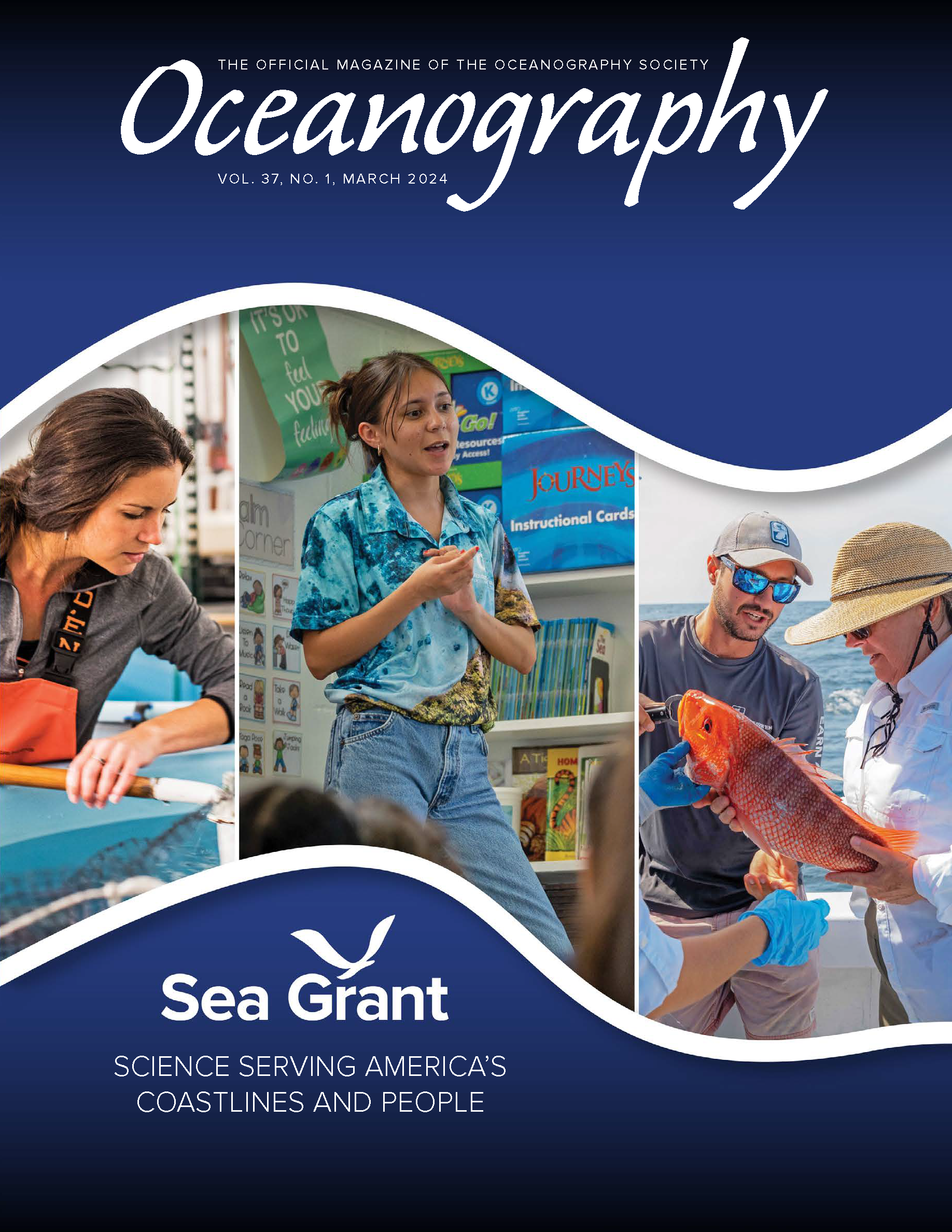Ohio Sea Grant teacher education expands Lake Erie knowledge into classrooms across the region
By Christina Dierkes.
This story is a partial reprint of an Ohio Sea Grant article. Read the expanded version here.
Ohio Sea Grant educators Lyndsey Manzo and Angela Greene have a hand in a wide range of professional learning for teachers, from developing curriculum and teaching Stone Lab workshops to accompanying teachers from across the Great Lakes region in shipboard science workshops aboard the U.S. EPA’s Lake Guardian research vessel.
In 2017 and 2018, Manzo and Greene used funding from the Center for Great Lakes Literacy (CGLL) to help teachers better integrate these different experiences into their classroom or other educational settings. Teachers who attended the 2017 shipboard science workshop were invited back to Stone Lab the next year, along with a colleague who hadn’t had the Lake Guardian experience, for a week of intensive Great Lakes knowledge, modern pedagogy and applied Ohio Sea Grant curriculum.
According to teacher feedback, working with their colleague was key to the success of this professional learning workshop. In addition to continued accountability to each other after the workshop ended, many participants reported that having knowledgeable support and someone to share ideas with helped them integrate learned strategies and content into their job much more easily than if they had gone back to work without that potential for collaboration.
“It’s not just what you teach, but how you teach,” Manzo said. “We really focus on the pedagogy piece, as well as the content to make sure teachers know how to teach about the Great Lakes.”
For Skye Powers-Kaminski and Becca Varadan, who work in the Educator Resource Center at the Cleveland Museum of Natural History (CMNH), that approach is informing a long-term professional development program for about 35 teachers in grades 3 to 5.
“We’re using some of Lyndsey and Angela’s models and things like the integration plan and educational technology as we go through a long-term sustained professional development program for the coming year,” said Varadan, the museum’s manager of educator engagement.
They also shared what they learned with colleagues, who in turn used it with hundreds of students in the museum’s homeschool programs and field trip programs. “It all correlates with the museum’s mission so well,” said Powers-Kaminski, a curriculum specialist.
Materials also made it into the museum’s lending library, where teachers from surrounding schools – many of them in underserved communities – can check out materials for their classrooms that cover everything from taxidermied animal specimens to thematic kits called Teaching Totes that include lesson plans, hands-on experiences and other materials. Powers-Kaminski incorporated a number of Ohio Sea Grant curricula and other resources from the workshop into Lake Erie kits for the more than 300 teachers that use the library.
And that’s really the end goal of Ohio Sea Grant and Stone Lab’s professional learning efforts. Every time just a few people pick up those lessons and run with them like Meller, Miller, Powers-Kaminski and Varadan have done, those efforts reach so many more students than concentrated work by just Sea Grant staff ever could.
Learn more about Stone Lab’s educator workshops.
View Ohio Sea Grant curricula and other educator resources.
Read the full story.


